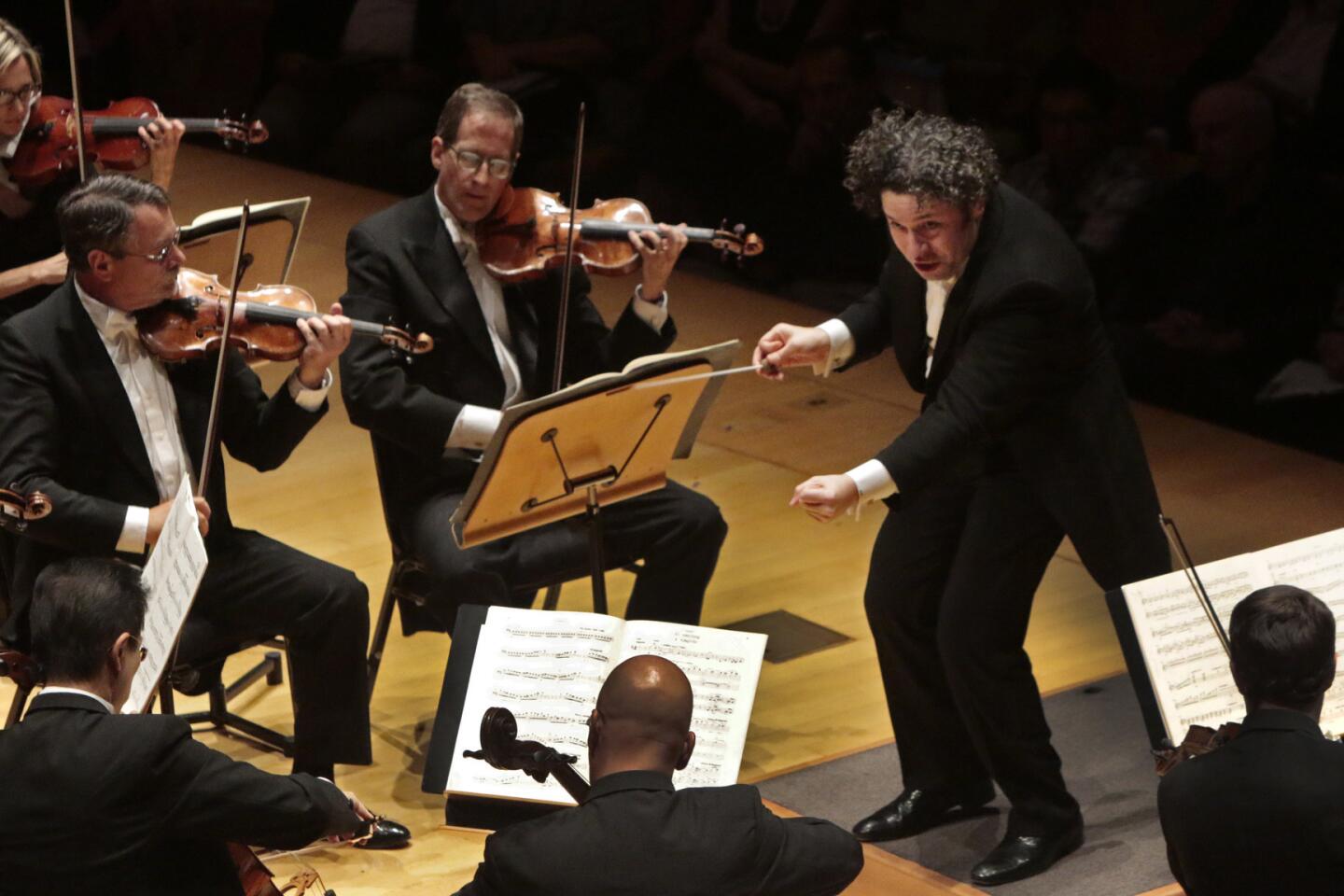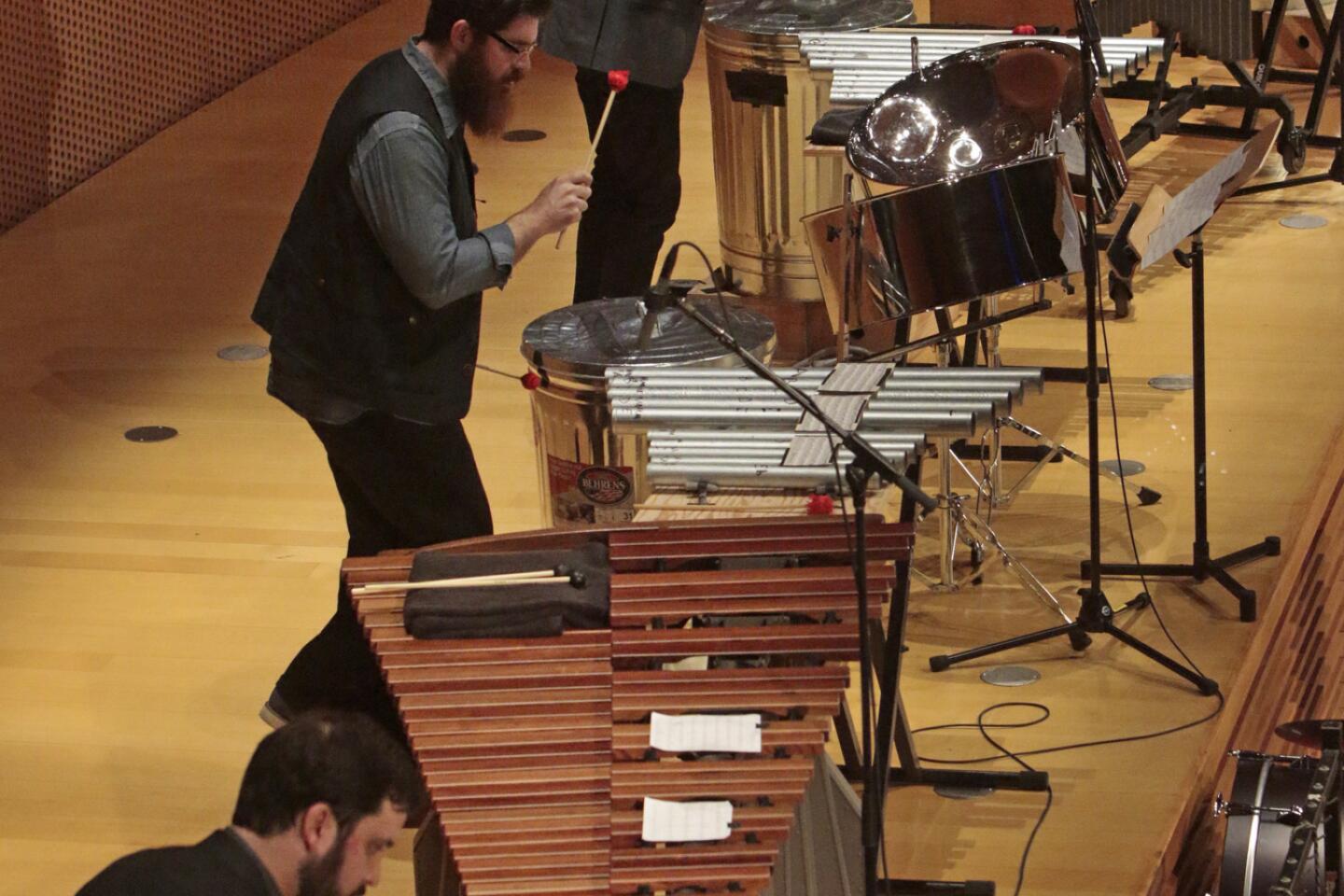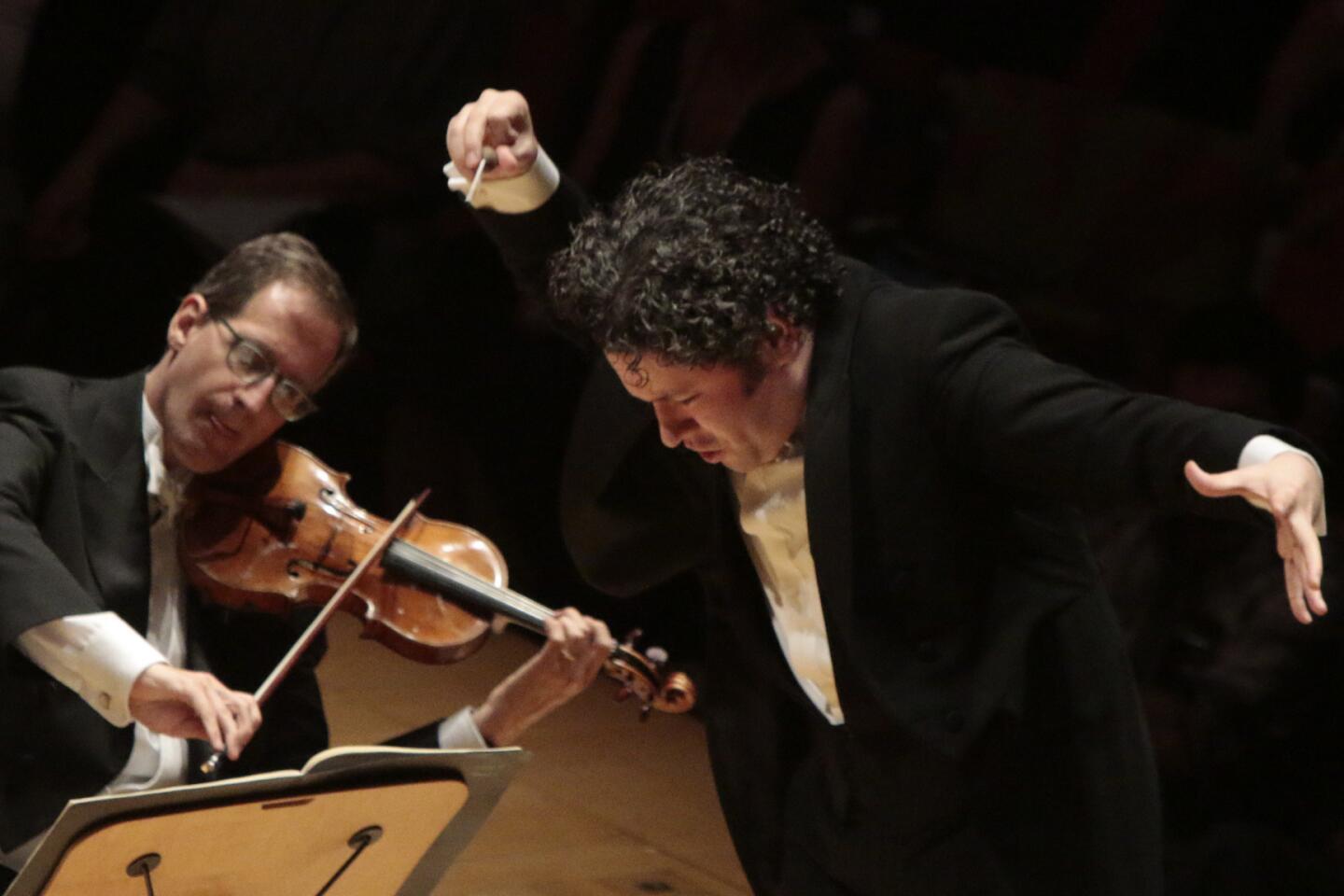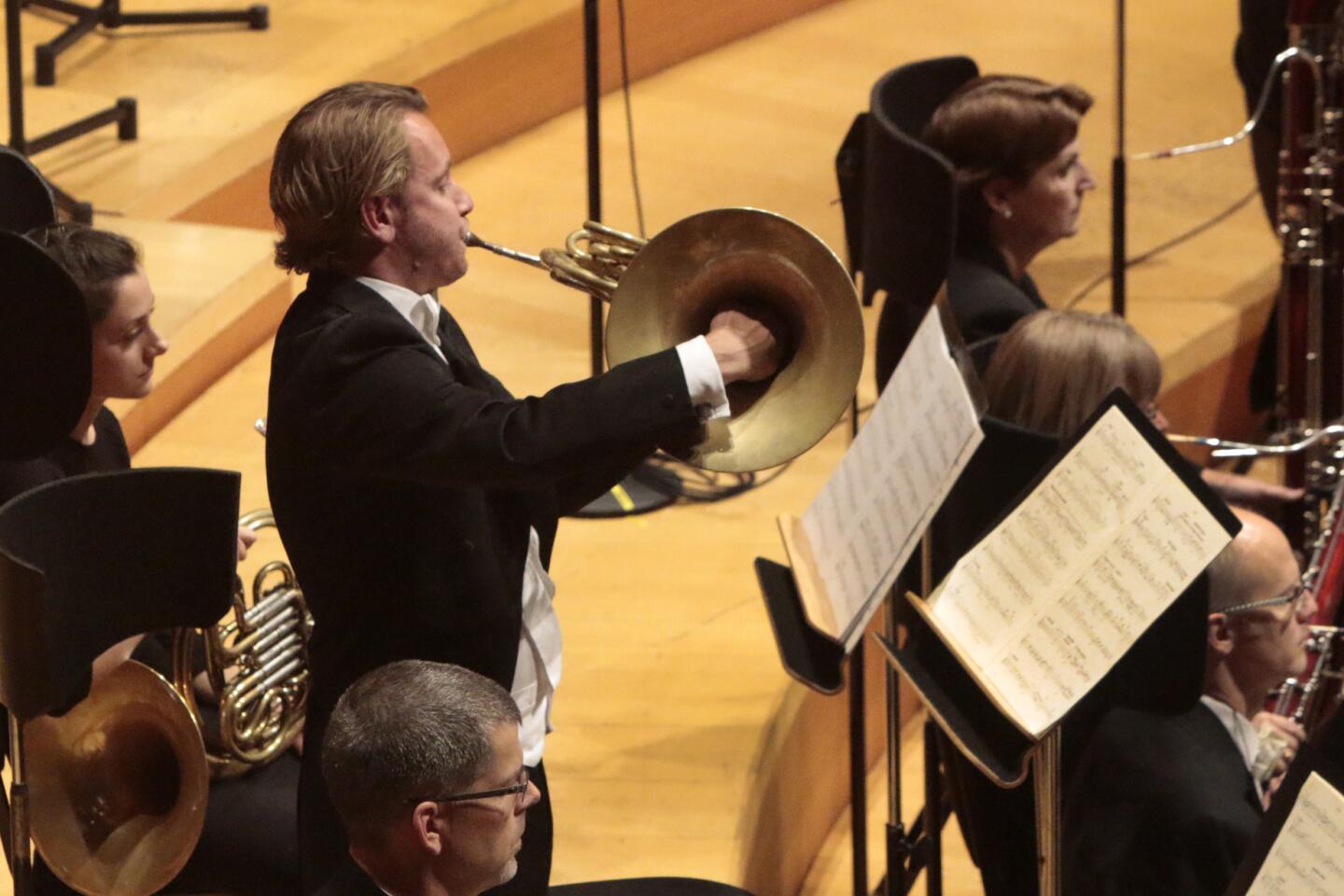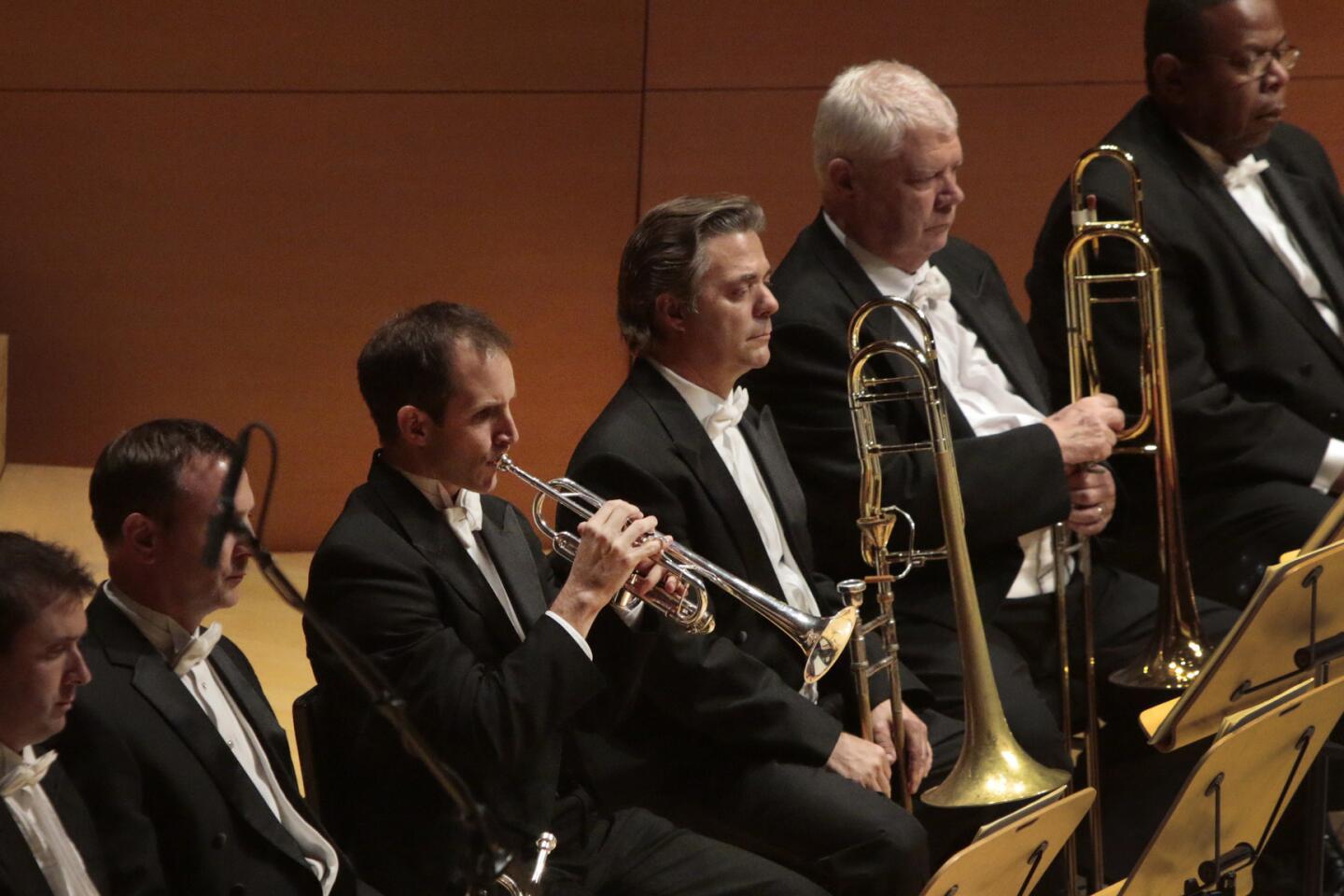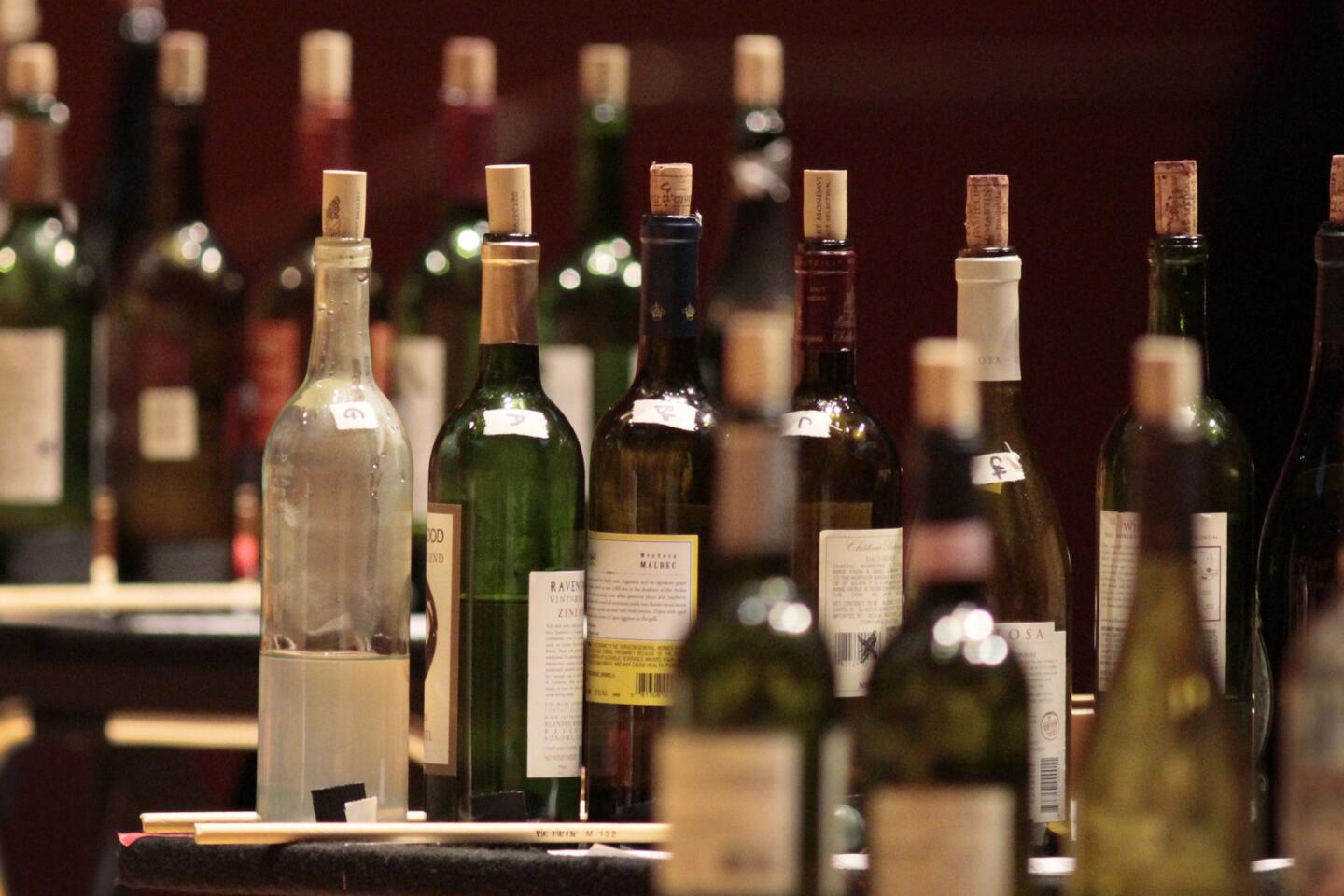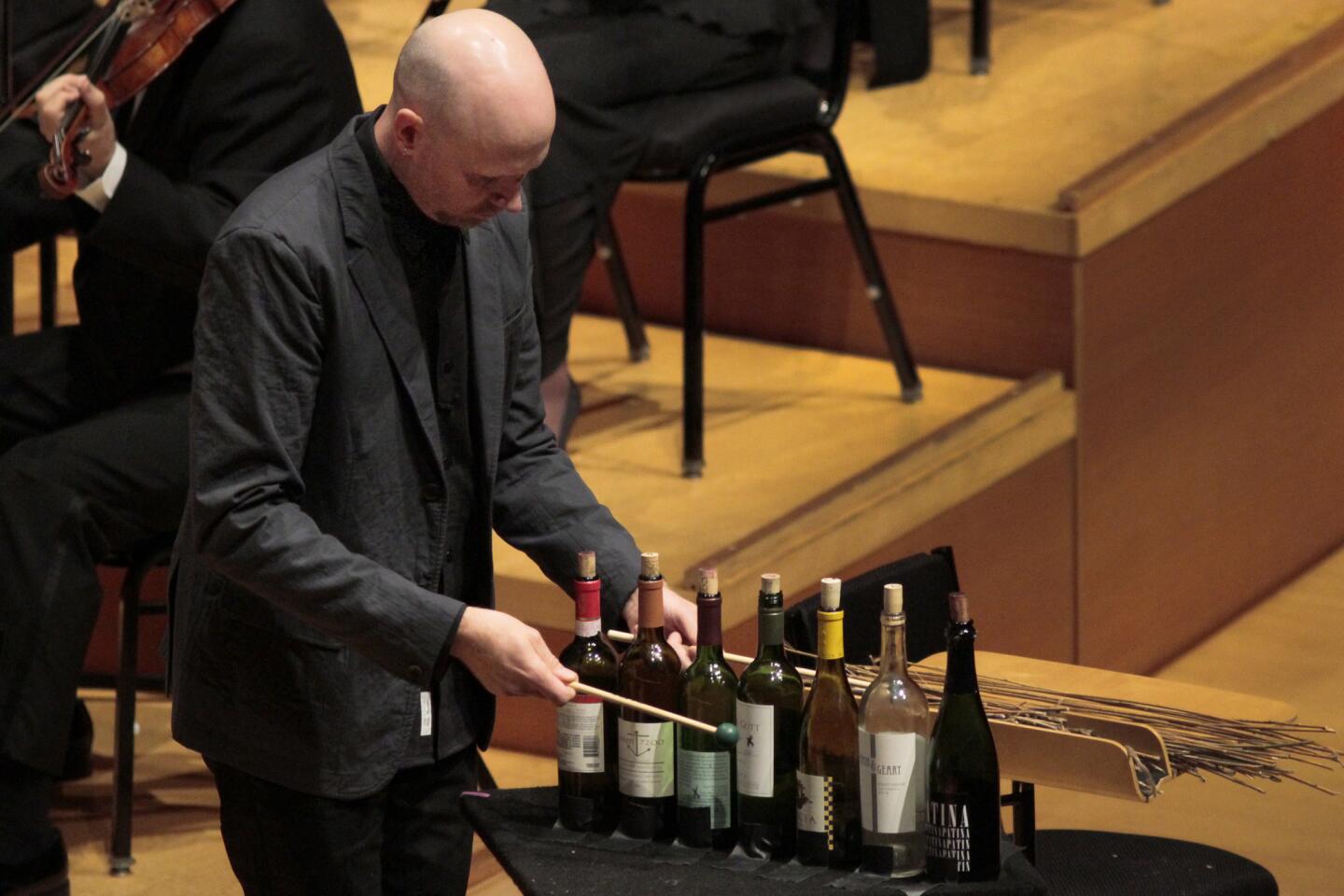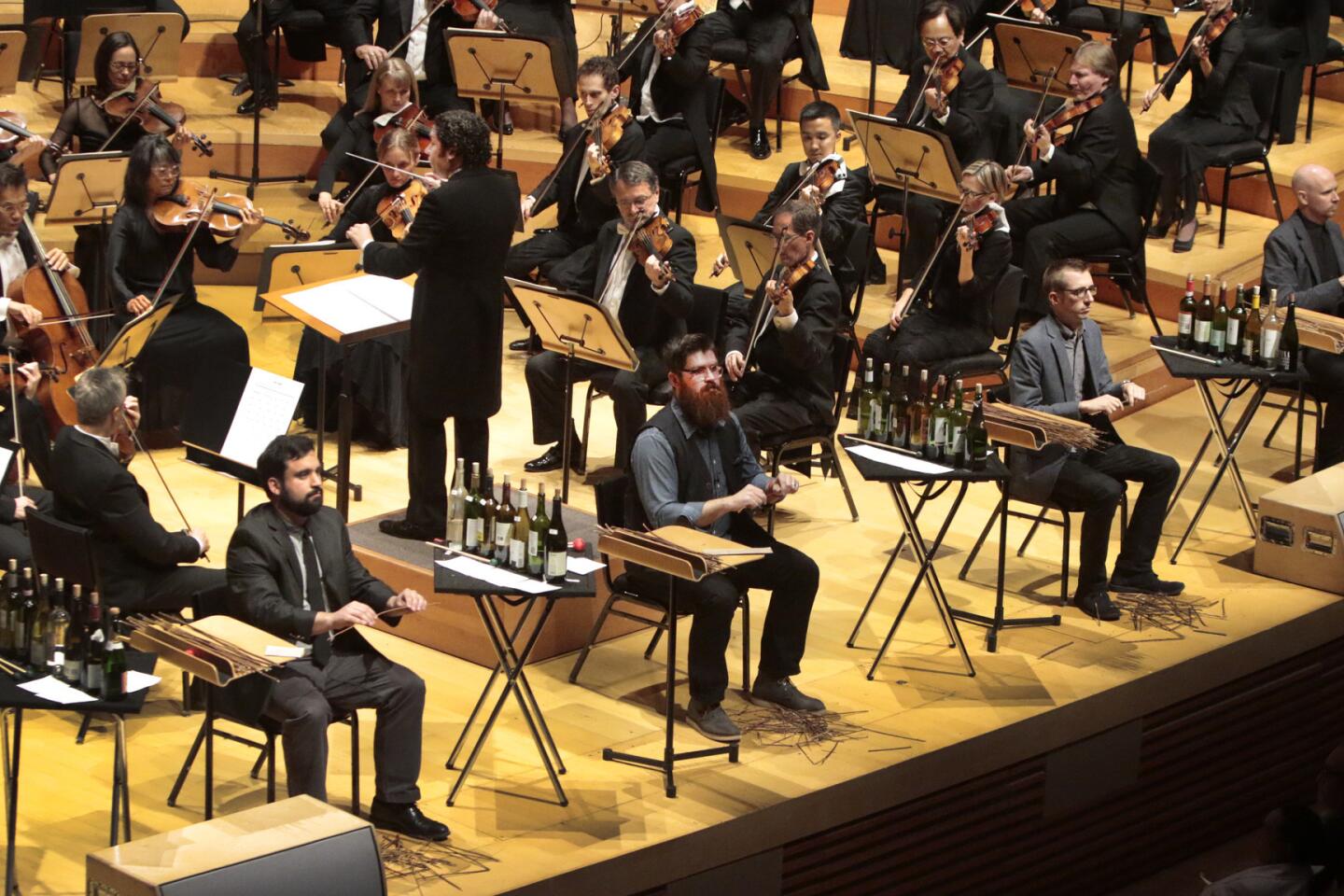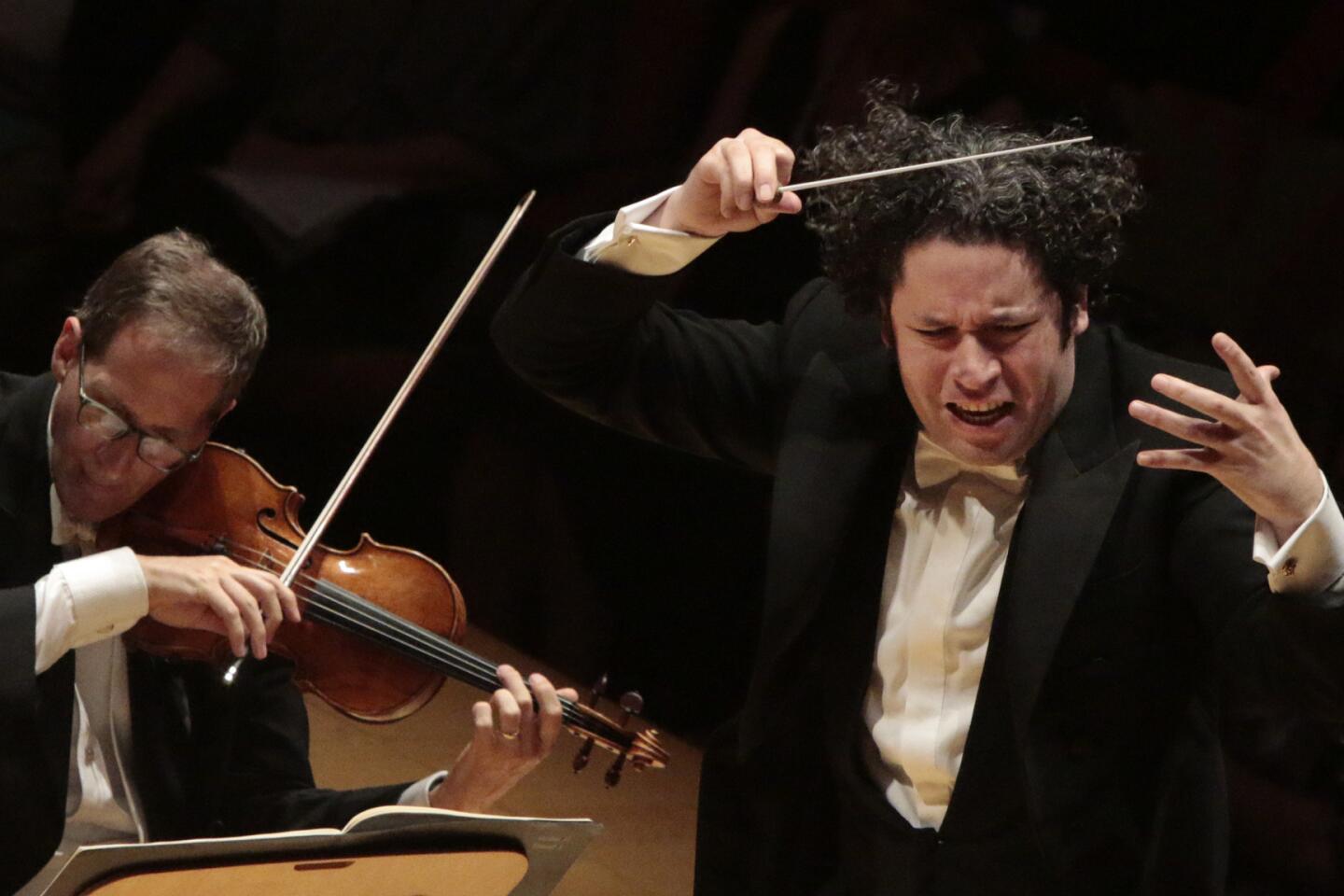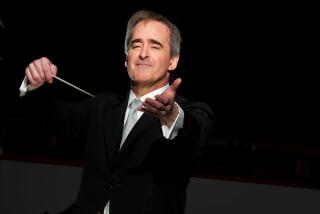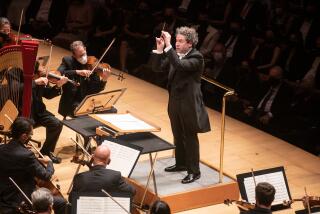Review: Twigs break, cans bang and L.A. Philharmonic soars with Mahler
Halfway through his current five-year contract as music director of the Los Angeles Philharmonic, Gustavo Dudamel turned, as he often has at significant junctures in his career, to Gustav Mahler.
For his first subscription concert of the new season at Walt Disney Concert Hall on Thursday night, Dudamel led a magnificent account of the composer’s monumental Fifth Symphony.
Although this was his first time conducting Mahler Fifth with the L.A. Phil, magnificence was not unexpected. The Fifth has been a Dudamel calling card and talisman. It was the first work he ever conducted with a professional orchestra when he won the inaugural Gustav Mahler Conducting Competition of the Bamberg Symphony 10 years ago at age 23.
A 2006 recording of the Mahler Fifth with the Simón Bolívar Youth Orchestra of Venezuela significantly solidified his international reputation. A year later, Dudamel used the symphony to introduce the Bolívars to L.A., generating what may be the loudest, most tumultuous audience response the hall has witnessed.
For Thursday’s program, Dudamel paired the Mahler Fifth with the U.S. premiere of David Lang’s “man made,” a percussion concerto the L.A. Phil co-commissioned with the BBC Symphony in London. An exceptional Dudamel tradition has been to begin every season with a newly commissioned piece.
The program, which runs through Sunday, is profound. Neither Mahler’s symphony nor Lang’s new concerto break the mold. Rather, in ways deep and meaningful, they question progress while embracing it.
The innovation in Lang’s concerto, written for the ensemble So Percussion, is evasive. The four percussionists (Eric Beach, Josh Quillen, Adam Sliwinski and Jason Treuting) begin by sitting in the front of the orchestra snapping twigs. Light amplification is used so that you can also hear a twig drop, but barely.
Making music from amplified plants is not new. Lang is a native Angeleno who has gone on to glory as a popular and Pulitzer Prize-winning New York composer and co-founder of Bang on a Can. For his L.A. Phil debut he has turned for inspiration to the first composer to bang on a can, John Cage, another Angeleno who migrated to New York and happens to be the first to snap an amplified twig and call it music.
Along with the twigs, the soloists strike tuned wine bottles, a steel drum, a trap set, xylophones and other conventional and found instruments. Of course they bang on a can – trash cans, in this case. The orchestral percussionists first respond as what Lang calls “translators,” catching the soloists’ sounds and then conveying them to the rest of the orchestra with them.
Strings and winds find their own asymmetrical rhythms, with thick and tonally colorful percussive-like attacks. The brass have lines that flow like lava. There are four cycles, and in each the orchestra slowly builds in sound and complexity, transforming and overwhelming the soloists.
Lang has likened this process to our relationship with nature. In loving our environment, we built around it and soon hide it. But “man made” need not be apocalyptic. Nature is not so much lost as transformed and even enhanced.
Mahler’s Fifth, written in 1901 and 1902, is the great transitional work between the 19th and 20th century with analogous questions about nostalgia and modernity. The score begins with a funeral march and a fraught sonata-form movement, an agitated and fearful farewell.
The center section is a vast scherzo that seems to say it is time to move on. A heart-rending love song, the famous Adagio, and then a frisky Finale indicate a way forward. New worlds are approached gingerly by Mahler, but he is aware of them every step of the way.
Dudamel’s approach to the Fifth has always been to take Mahler, who liked to say every note is a universe, at his word and to find incredible gusto in this massive multiverse, bouncing off the galaxies.
At 33, the conductor now has a larger vision. He’s gotten slightly slower by around three minutes; the timing Thursday was 73 minutes. He’s gotten more philosophical; Mahlerian lyricism and violent passions are no longer treated as bipolar extremes but rather intricate parts of complex nature. He holds the symphony together not by showing where it’s going but by going with it.
The playing by the L.A. Phil was a sensation. The symphony begins with a terrifying trumpet solo. Thomas Hooten nailed it and the further terrors that followed. Principal horn Andrew Bain brought effusive beauty to the horn solos (which he played standing) in the Scherzo. But the greatest glory was hearing all the brass and all the orchestra follow their many leaders.
Twitter: @markswed
------------
Los Angeles Philharmonic
Where: Walt Disney Concert Hall, 111 S. Grand Ave., Los Angeles
When: 8 p.m. Saturday and 2 p.m. Sunday
Cost: $26.50-$202
Info: (323) 850-2000, www.laphil.org
More to Read
The biggest entertainment stories
Get our big stories about Hollywood, film, television, music, arts, culture and more right in your inbox as soon as they publish.
You may occasionally receive promotional content from the Los Angeles Times.
